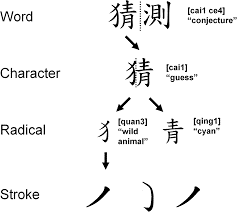Why learning Chinese pronunciation by using English words is a really bad idea
Learning Chinese pronunciation by relying on English words is a flawed approach that can lead to persistent mistakes and misunderstandings. While it may seem convenient to use familiar English sounds as a crutch, Chinese phonetics operate on entirely different principles. The tonal nature of Mandarin, along with unique consonants and vowels, cannot be accurately approximated through English equivalents. This method fosters bad habits, making it harder to achieve proper pronunciation later. Mispronunciations can alter meanings entirely, leading to confusion or unintended offense. To truly master Chinese, learners must embrace its distinct sounds from the start, leaving English approximations behind.
Why Learning Chinese Pronunciation Through English Words Leads to Major Mistakes
1. English and Chinese Sounds Are Fundamentally Different
Chinese relies on tones and distinct phonetic structures that don’t exist in English. Using English approximations (like shi for 是) distorts pronunciation, making it harder to be understood. For example, Mandarin has retroflex consonants (e.g., zh, ch) that English lacks, leading to mispronunciations.
| Chinese Sound | English Approximation | Resulting Error |
|---|---|---|
| 是 (shì) | she | Missing the falling-rising tone |
| 吃 (chī) | chee | Incorrect aspiration |
2. Tones Are Ignored in English Transcriptions
Mandarin’s four tones change word meanings entirely (e.g., mā (妈, mother) vs. mà (骂, scold)). English spellings (e.g., ma) erase these distinctions, causing confusion. A study showed that tone errors account for 61% of beginner misunderstandings.
See AlsoHandwriting Chinese characters: The minimum requirements| Pinyin | English Equivalent | Actual Meaning |
|---|---|---|
| mā (妈) | ma | Mother |
| mà (骂) | ma | To scold |
3. Reinforces Bad Habits Early On
Relying on English crutches creates fossilized errors—persistent mistakes that become harder to unlearn. For instance, pronouncing qīng (轻, light) as ching trains the brain to associate Chinese sounds with incorrect English ones, requiring later relearning.
| Habit | Long-Term Impact |
|---|---|
| Using j for zh | Difficulty mastering retroflex sounds |
| Ignoring tones | Unintelligible speech |
4. Limits Listening Comprehension
Native Chinese speakers use precise sounds, not English approximations. Learners who depend on xie xie (谢谢) written as shay shay struggle to recognize the actual word in conversations due to phonetic mismatch.
| English-Based Attempt | Native Pronunciation | Recognition Gap |
|---|---|---|
| shay shay | xièxie (/ɕi̯ɛ̂.ɕi̯ɛ/) | High |
5. Cultural and Professional Barriers
In professional settings, poor pronunciation undermines credibility. For example, saying wǒ shì (我是) as woe shee may be seen as lack of effort, while accurate tones signal respect for the language and culture.
See AlsoLe in Chinese Grammar: Emphasise Adjectives| Scenario | English-Based Error | Perception |
|---|---|---|
| Business meeting | Ni hao (你好) as knee how | Unprofessional |
What do Chinese people struggle with when learning English?

Pronunciation Challenges
Chinese learners often struggle with English pronunciation due to differences in phonetic systems. Mandarin lacks certain English sounds, making it difficult to articulate words correctly. Common issues include:
- Vowel sounds: English has more vowel variations than Mandarin, leading to confusion in words like ship vs. sheep.
- Consonant clusters: Mandarin syllables are simpler, so phrases like strengths are hard to pronounce.
- Intonation: English uses stress and pitch differently, causing flat or unnatural speech patterns.
Grammar Differences
English grammar rules often clash with Mandarin structures, creating confusion. Key struggles include:
See AlsoHSK 4 Vocabulary Test - Find Out Your HSK Level- Tenses: Mandarin doesn’t conjugate verbs, making past/present/future forms challenging.
- Articles: The concept of a, an, and the doesn’t exist in Mandarin, leading to omissions.
- Pluralization: Mandarin nouns don’t change for plurality, so adding -s or -es is often forgotten.
Vocabulary Acquisition
Memorizing and using English vocabulary effectively is a hurdle due to:
- False friends: Words like embarrassed (尴尬) vs. pregnant (怀孕) sound similar but mean different things.
- Idioms/phrasal verbs: Phrases like break the ice lack direct translations, causing confusion.
- Word order: English adjectives precede nouns, unlike Mandarin, where descriptors often follow.
Listening Comprehension
Understanding spoken English is tough because of:
- Accents/dialects: Exposure to varied accents (e.g., British vs. American) is limited in China.
- Fast speech: Native speakers often blend words (e.g., wanna for want to), which learners miss.
- Slang/colloquialisms: Informal terms like ghosting or salty aren’t taught in textbooks.
Writing and Spelling
English writing poses challenges due to:
- Irregular spelling: Words like through vs. tough don’t follow consistent rules.
- Sentence structure: English relies on strict subject-verb-object order, unlike Mandarin’s flexibility.
- Punctuation: Misuse of commas or apostrophes is common, as Mandarin uses them differently.
What do Chinese people struggle to pronounce in English?

Common English Sounds Difficult for Chinese Speakers
Chinese speakers often struggle with certain English sounds due to differences in phonetic systems. Key challenges include:
- Th-sounds (e.g., think or this): These sounds don’t exist in Mandarin, leading to substitutions like s or f.
- V and W: Mandarin lacks a distinct v sound, causing confusion between words like vet and wet.
- L and R: Some dialects merge these sounds, making words like light and right hard to distinguish.
Vowel Pronunciation Challenges
English vowels are particularly tricky because Mandarin has fewer vowel sounds. Common issues include:
- Short vs. long vowels (e.g., ship vs. sheep): Mandarin doesn’t distinguish vowel length, leading to mispronunciations.
- Schwa sound (e.g., about): Unstressed syllables are often overpronounced or replaced with Mandarin vowel sounds.
- Diphthongs (e.g., coin or loud): These are often simplified into single vowel sounds.
Consonant Clusters in English
Mandarin syllables rarely end with consonants, making clusters difficult:
- Final consonants (e.g., desk): Speakers may drop or add vowels (e.g., des-ku).
- Blends (e.g., splash): Extra vowels might be inserted (e.g., su-plash).
- Nasal endings (e.g., -ng): Often mispronounced as -n or omitted.
Stress and Intonation Patterns
English relies on stress and rhythm, while Mandarin uses tones:
- Word stress: Misplaced stress (e.g., REcord vs. reCORD) changes meaning.
- Sentence rhythm: Mandarin’s syllable-timed rhythm clashes with English’s stress-timed flow.
- Intonation: Flat tones in questions or statements sound unnatural.
Commonly Mispronounced English Words
Specific words frequently trip up Chinese learners:
- Rural: The r and l combination is challenging.
- Sixth: The -xth cluster is unnatural in Mandarin.
- Clothes: The th and silent e are often mispronounced as close.
Why is Chinese pronunciation hard?

The Complexity of Tones in Chinese
One of the primary reasons Chinese pronunciation is difficult is due to its tonal nature. Mandarin Chinese has four main tones and a neutral tone, each altering the meaning of a word entirely. Mispronouncing a tone can lead to misunderstandings, even if the syllable is correct.
- Tone 1 (High Flat): A steady high pitch, like singing a note.
- Tone 2 (Rising): Starts mid and rises, similar to asking a question in English.
- Tone 3 (Falling-Rising): Dips down and then rises, often the hardest to master.
- Tone 4 (Falling): Sharp and abrupt, like a command.
- Neutral Tone: Light and quick, with no distinct pitch.
Pinyin vs. Actual Pronunciation
While Pinyin (the Romanization system for Chinese) helps learners, it doesn’t always match the actual sounds in Mandarin. Letters like q, x, and c represent sounds that don’t exist in English, leading to confusion.
- Q sounds like ch: But with the tongue positioned differently.
- X resembles sh: Yet it’s softer and more forward in the mouth.
- C is a mix of ts: A sharp, aspirated sound.
Similar-Sounding Syllables
Chinese has many homophones—words that sound identical but have different meanings. Without proper intonation or context, distinguishing them becomes challenging.
- Example ma: Can mean mother, hemp, horse, or be a question particle.
- Example shi: Over 100 characters share this pronunciation.
- Context reliance: Meaning often depends on surrounding words.
Retroflex and Aspirated Consonants
Mandarin includes retroflex consonants (like zh, ch, sh) and aspirated sounds (like p, t, k), which require precise tongue placement and breath control unfamiliar to English speakers.
- Retroflex sounds: The tongue curls back toward the palate.
- Aspirated consonants: A strong burst of air accompanies the sound.
- Minimal pairs: Small mispronunciations change meanings (e.g., bù vs. pù).
Regional Accents and Dialects
China’s vast linguistic diversity means even native speakers may struggle with regional accents or dialects, adding another layer of difficulty for learners.
- Northern vs. Southern Mandarin: Pronunciations of r and n/l differ.
- Dialects like Cantonese: Use entirely different tones and sounds.
- Local slang: Informal speech often deviates from standard Mandarin.
Frequently Asked Questions (FAQ)
Why is using English words to learn Chinese pronunciation ineffective?
Using English words to approximate Chinese pronunciation is highly ineffective because the two languages have vastly different phonetic systems. Chinese relies on tones, which change the meaning of words, while English does not. For example, the word ma in Chinese can mean mother (妈, first tone) or horse (马, third tone), but English spellings like mah fail to capture these distinctions. This method creates mispronunciations and reinforces incorrect speech patterns, making it harder to learn proper Chinese later.
How does relying on English words distort Chinese tones?
Chinese is a tonal language, meaning the pitch or intonation of a syllable determines its meaning. English, however, is not tonal, so using English approximations completely ignores this critical aspect. For instance, writing ni hao as knee how teaches learners to say it flatly, missing the rising (nǐ) and dipping (hǎo) tones. This leads to confusion and misunderstandings, as native speakers may not recognize toneless pronunciations of words.
What are the long-term drawbacks of learning Chinese pronunciation this way?
Learning Chinese pronunciation through English transliterations creates bad habits that are difficult to unlearn. Students may become dependent on these crutches, delaying their ability to read Pinyin (the official Romanization system for Chinese) or characters. Additionally, it hinders listening comprehension, as learners struggle to match the sounds they’ve practiced (based on English) with authentic Chinese speech. Over time, this gap widens, requiring more effort to correct.
Are there better alternatives to using English words for Chinese pronunciation?
Yes, the most effective method is learning Pinyin alongside audio resources from native speakers. Pinyin provides a precise guide to pronunciation, including tones, without relying on inaccurate English equivalents. Tools like language apps, tutors, or videos help train the ear and mouth to produce correct sounds. Immersing yourself in authentic Chinese content (e.g., songs, podcasts) also accelerates proper pronunciation and tonal awareness, far surpassing the limitations of English-based shortcuts.
Leave a Reply

Related Posts